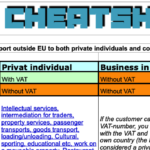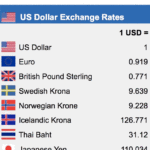Accrual accounting method is a term that describes how the posting of invoices and journals are done in larger companies (corporations), compared to sole proprietorships which usually applies the cash method of accounting.
What is the accrual method of accounting?
It is an accounting method which enables you to record expenses and revenues in a more correct way compared to the cash method. With the accrual method it’s the invoice date that controls in which period sales tax, costs and revenues belong.
When you create an invoice to the customer, it is the invoice date you write on the invoice that dictates when to revenue is generated by your company. Hence, you get a revenue as soon as you post your invoice and send it to the customer. The same principle applies to supplier invoices. You post the invoice, and it is the invoice date that controls in which period the expenditure is incurred, which is often the same period as when the cost is taken, or sometimes the payment slips over into the next month depending on payment terms on the invoice. The cost should always be realised in the accounting ledger before payment is done. The cost (or expense as accountants want to call it) are realised when something is consumed. Therefore, the costs e.g. rent may have been accrued so that a cost is recorded every month for the next quarter, but the invoice is paid in advance. But the full VAT is taken in the period that the invoice date indicates.
The accrual accounting method involves a bit more administration because you post the invoice, both when you get it and when you pay it. With a cash basis accounting method you post only once when you pay or receive funds to your account, but then both costs and VAT are often not in the “correct” period, that’so why only smaller companies are allowed to use it. Different rules apply for different countries but as an example, unincorporated firms in Sweden with a turnover of less than 3 million per year are allowed to use cash-based methods for both accounting and VAT reporting.
Further reading:
VAT reporting with accrual- and cash method





